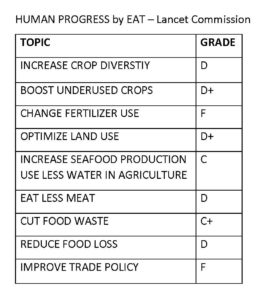Climate Change is Here
Following our growers meeting a few Saturdays ago, I had a discussion with friends about climate change and how it is affects our olive trees. As I am writing this blog, we are facing a fantastic olive bloom, and very heavy rain. As I cannot hold an umbrella over all of our 3000 trees, I am hoping that there is no hail with the heavy rain.
I drove home considering the pattern of olive set, the changing pattern of harvest dates, and how we have attempt to run an organic Farm in this a very active changing climate event.
I picked up my mail, chased away the deer eating my roses, and much to my interest, the current issue of MIT Review is dedicated to CLIMATE CHANGE.
In 2007, Jack Holden stated that we have basically three choices, mitigation, adaptation, and suffering. He was the Science Advisor to President Obama.
Holden says, “We may be too late.” I would encourage you to read the entire issue, MIT Review. Vol 122 No 3 May-June 2019, it is sobering. Gideon Lichfield, Editor in Chief begins his editorial, with Climate Change Affects Everyone. He means everyone, you, your children, your Uncle, your cousins your pets and wildlife. Your behavior affects each and every person.
When MIT magazine arrives, I always go to “The Back Page” of MIT Review because the magazine presents short interesting synopsis articles.
This issue, A Planetary Health Report Card by Rachel Cernansky, she states. “If we are going to cope with a changing climate and exploding global population, nearly everything about life needs to shift – including how people grow and eat food. That is the conclusion of the EAT- Lancet Commission, a group of scientists recommending a new approach for “planetary health.” We rated human progress to see how things are shaping up.

Healthy Diets from sustainable Food Systems by EAT – Lancet states that food will be the defining issue of the 21 Century. Anthropocene is a proposed new geological epoch that is characterized by humanity being the dominating force of change on the planet.
How does this affect us at IL Fiorello and all farmers in general? Let us discuss harvests, varieties, water, food and funding.
We have later harvests and suffer harvests that are more inconsistent. This means that we have more fluctuations in volume of the olive harvest.
Traditional olive varieties may not be the answer to this dilemma. It is very important to diversify in the Farm and to try to match the climate. We have planted Chemlali Olives from Tunisia that appear to be more tolerant to dry climates. They are doing very well for young trees. Time will tell.
Water. Be water wise. Use water well. Monitor your crop use. Do not just dig wells that succeeding in draining the aquifers.
We talk about food and the effect on people. B corporations focus on people, planet and profit. Slow Food is good clean and fair. The result is that we are finally bringing to the forefront the huge issues that man has created on Earth. Do not waste food.
We need to use public funding and industrial policies need to take on climate change, as governments are and have been unable to effect such a change.
Be wise, BE careful with your resources, and be aware that climate change is real.
Very real.
Ann
For your additional reading:
References
Summary Report of the EAT-Lancet Commission
thelancet.com/commissions/EAT
MIT Review. Vol 122 No 3 May-June 2019
